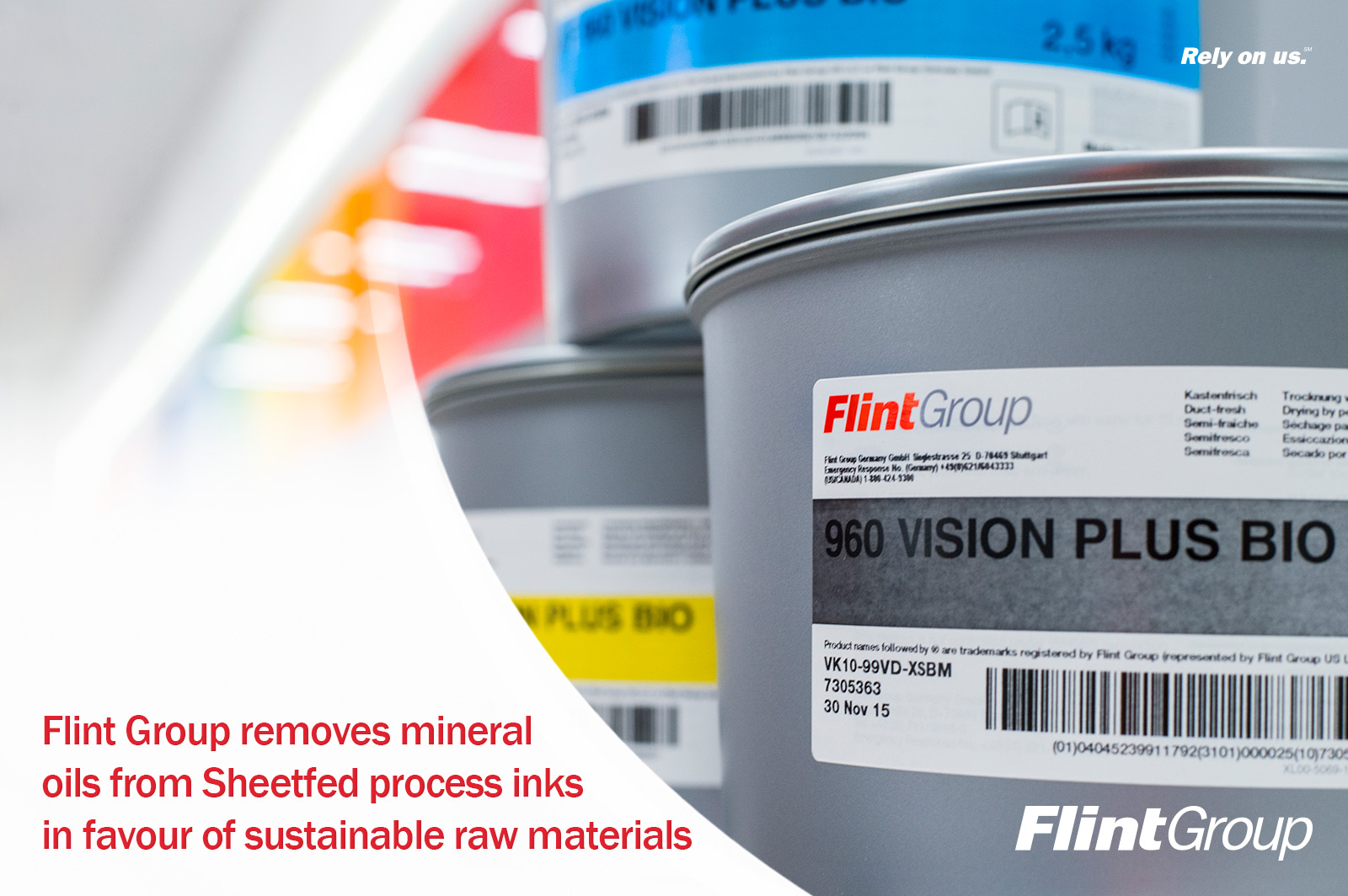
Headlines
News
Flint Group removes mineral oil from sheetfed process inks to support sustainability in offset printing
August 4, 2023 By PrintAction Staff

Global print consumables manufacturer Flint Group declares its sheetfed process ink series is mineral oil free.
The full range of Flint Group’s K+E process series is now exclusively made from more sustainable formulations.
Mineral oil will also be phased out as a raw material from Flint Group’s sheetfed bulk manufacturing processes. The announcement follows an internal review by Flint Group after the company acknowledged that mineral oil use does not contribute to a sustainable future.
Roy van der Pijl, commercial director, Offset Packaging Solutions at Flint Group, said, “At Flint Group, we pride ourselves on supplying sustainable sheetfed inks to the print industry, aiming to support our customers’ environmental objectives while reducing our own impact on the planet.
“Although most of our sheetfed ink ranges were already made from sustainable, bio-renewable raw materials, we recognized that using mineral oil in the remaining few was hindering our sustainability efforts. That’s why we’ve conducted this review and why I am delighted to announce that our remaining mineral oil-based sheetfed process inks are now being produced from more sustainable raw materials.”
Emil Schroetter, technology director, Sheetfed at Flint Group, commented, “Removing mineral oils from Flint Group’s sheetfed process inks will help us take even greater action towards reducing carbon while preserving the high press performance our inks are renowned for. This announcement is a significant step for the offset printing sector, and enables Flint Group to respond quickly to changing regulations.”
Recent years have seen growing concerns over the environmental effects of mineral oil-based inks. For example, since January this year, France has prohibited using more than one per cent mineral oil in printing inks for commercial and packaging applications with this limit reducing to just 0.1 per cent by 2025, signalling the start of changing regulations worldwide.
Print this page